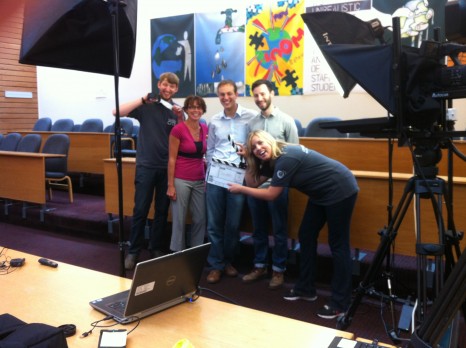 Me and My Web Shadow: How to Manage Your Reputation Online by Antony Mayfield, www.amazon.co.uk/...
Me and My Web Shadow: How to Manage Your Reputation Online by Antony Mayfield, www.amazon.co.uk/...  Me and My Web Shadow: How to Manage Your Reputation Online by Antony Mayfield, www.amazon.co.uk/...
Me and My Web Shadow: How to Manage Your Reputation Online by Antony Mayfield, www.amazon.co.uk/... 
 Me and My Web Shadow: How to Manage Your Reputation Online by Antony Mayfield, www.amazon.co.uk/...
Me and My Web Shadow: How to Manage Your Reputation Online by Antony Mayfield, www.amazon.co.uk/...  Big Data: A Revolution That Will Transform How We Live, Work and Think by Viktor Mayer-Schonberger, www.amazon.co.uk/...
Big Data: A Revolution That Will Transform How We Live, Work and Think by Viktor Mayer-Schonberger, www.amazon.co.uk/...  The New Normal: Explore the Limits of the Digital World by Peter Hinssen, www.amazon.co.uk/...
The New Normal: Explore the Limits of the Digital World by Peter Hinssen, www.amazon.co.uk/...  The Digital Scholar: How Technology is Changing Academic Practice by Martin Weller, www.amazon.co.uk/...
The Digital Scholar: How Technology is Changing Academic Practice by Martin Weller, www.amazon.co.uk/...  Socialnomics: How Social Media Transforms the Way We Live and Do Business by Erik Qualman, www.amazon.co.uk/...
Socialnomics: How Social Media Transforms the Way We Live and Do Business by Erik Qualman, www.amazon.co.uk/...  The End of Business As Usual: Rewire the Way You Work to Succeed in the Consumer Revolution by Brian Solis, www.amazon.co.uk/...
The End of Business As Usual: Rewire the Way You Work to Succeed in the Consumer Revolution by Brian Solis, www.amazon.co.uk/...  What's the Future of Business?: Changing the Way Businesses Create Experiences by Brian Solis, www.amazon.co.uk/...
What's the Future of Business?: Changing the Way Businesses Create Experiences by Brian Solis, www.amazon.co.uk/... 